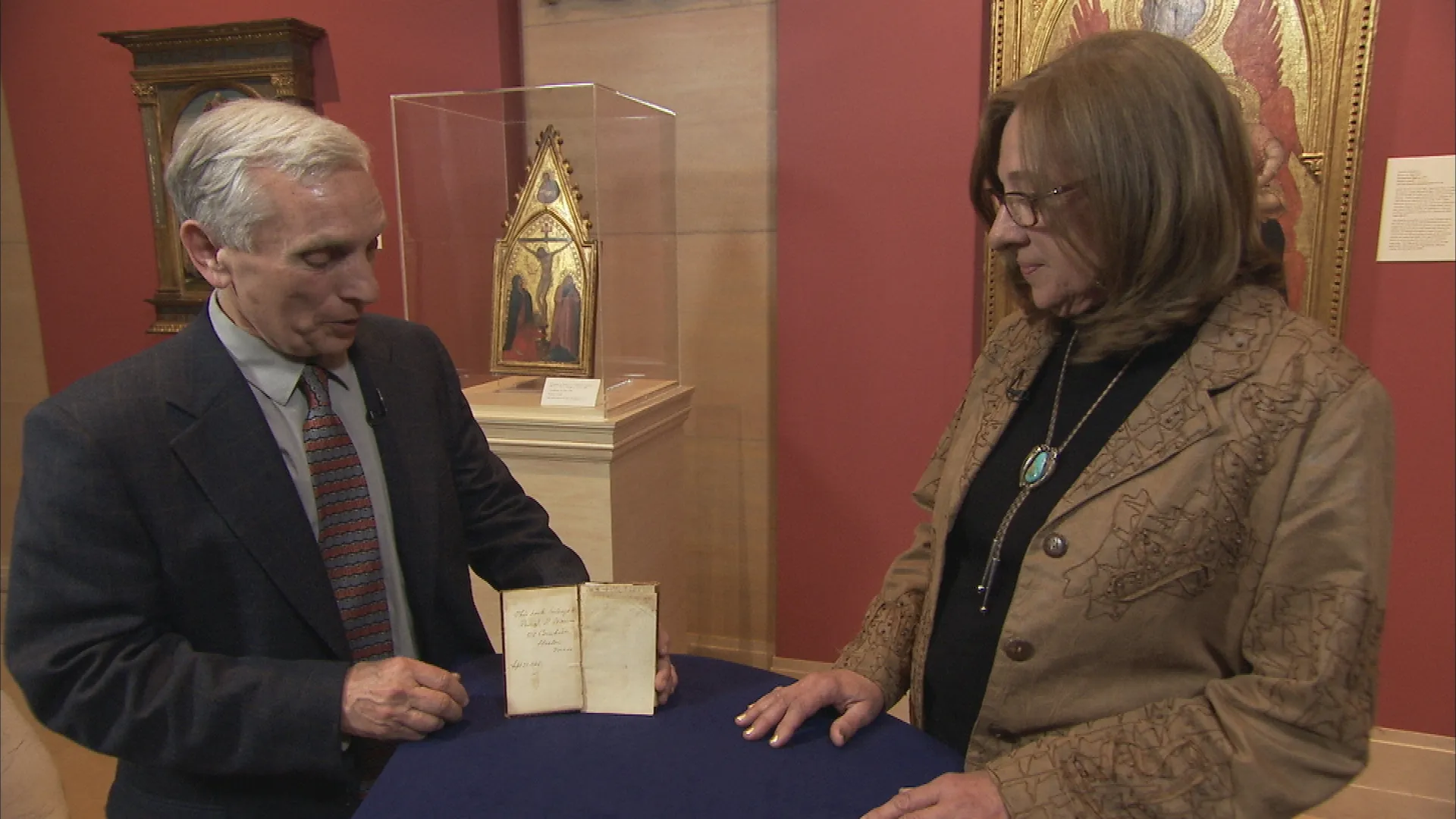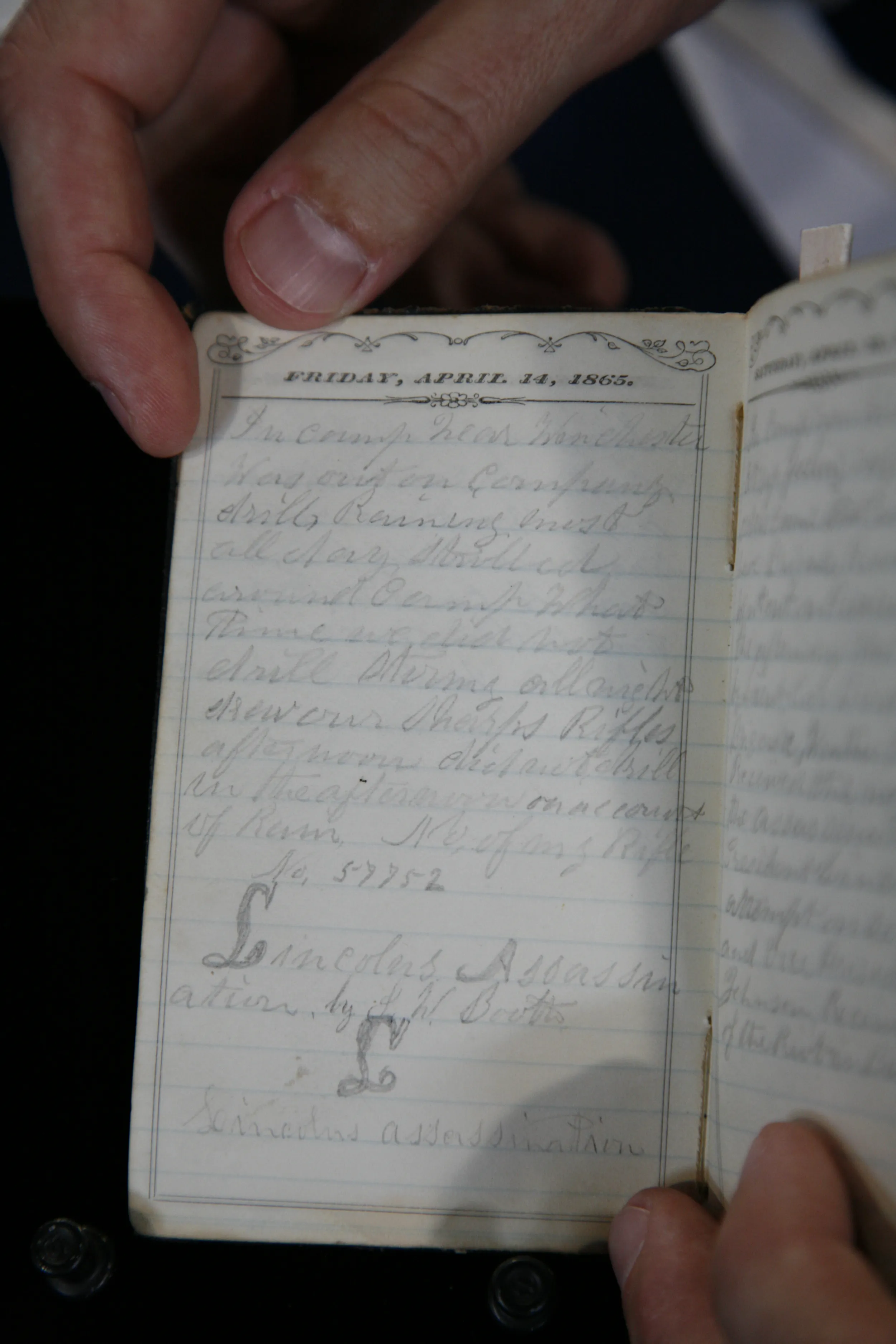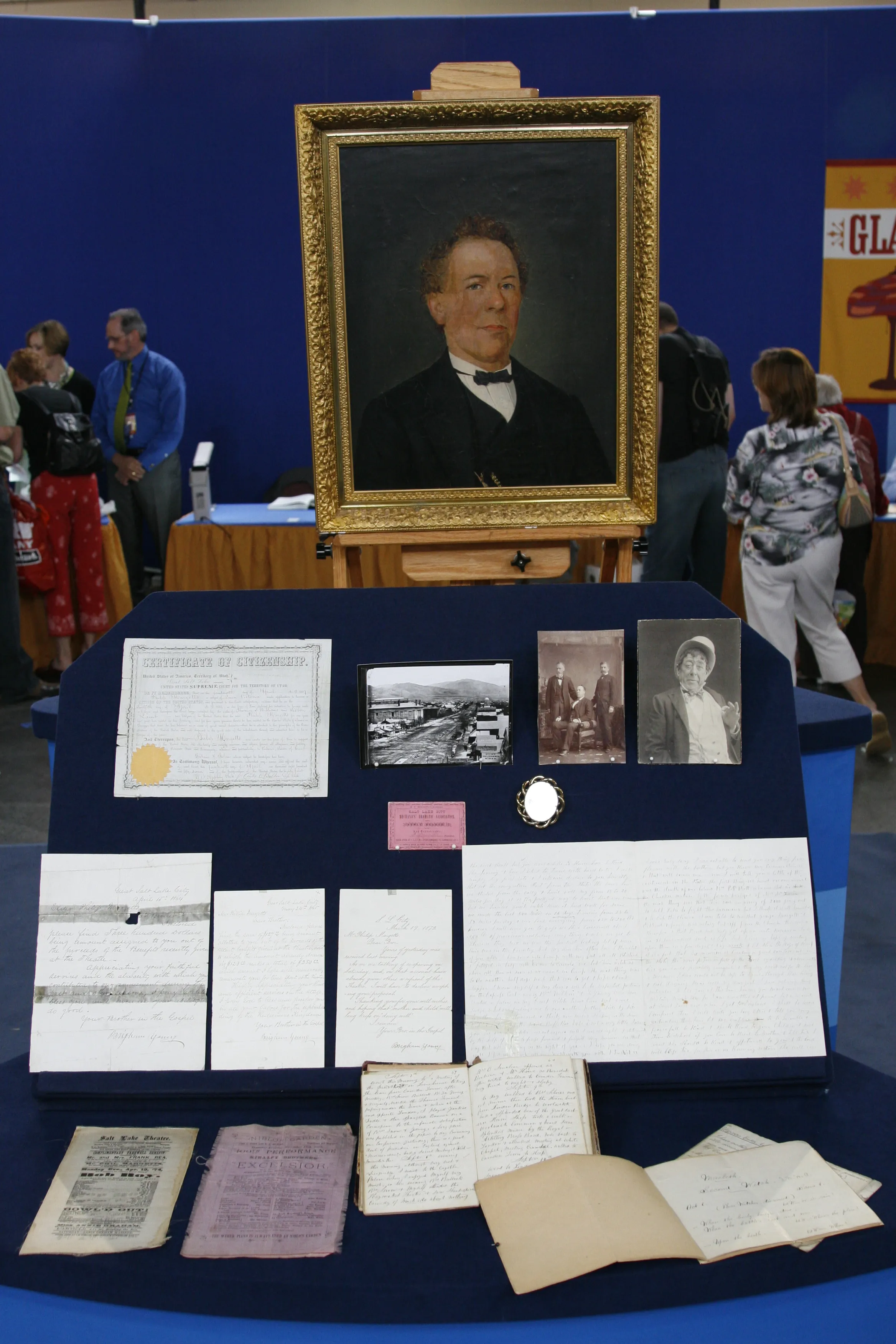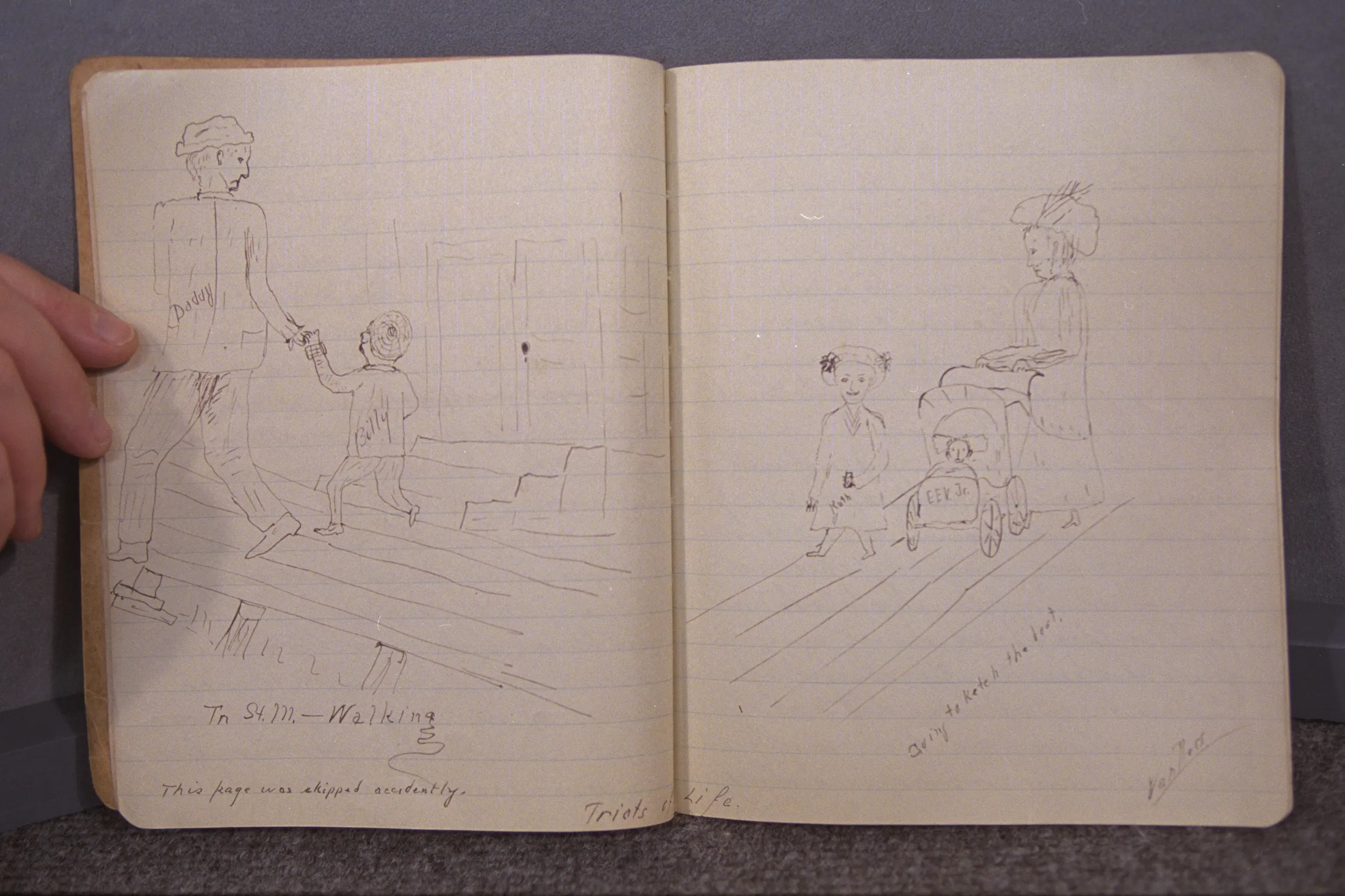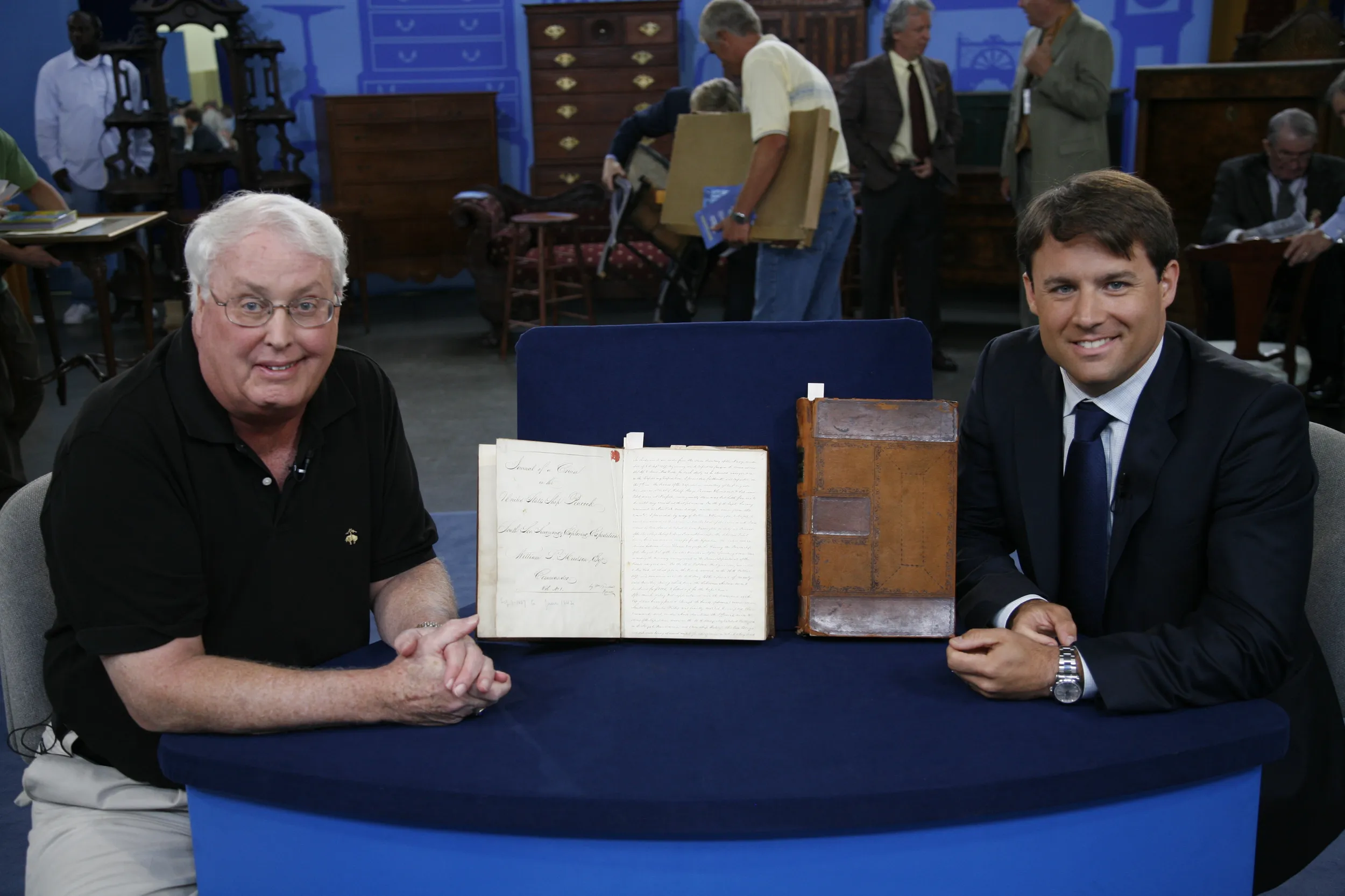GUEST: I bought it about 15 years ago, and I bought it at an estate auction. Paid five dollars for it. I really didn't know anything, and I still don't really know anything about it.
APPRAISER: Well, let me first show whose this is, and the owner was Warren. He's in Boston.
GUEST: Yes.
APPRAISER: The address is 28 Cornhill. And he was an abolitionist, and a lot of what he's writing about, he obviously traveled through the South right after the war, maybe even during parts of the war as the Union advanced.
GUEST: Mm-hmm.
APPRAISER: And was giving an idea of the conditions of the blacks, slavery.
GUEST: Mm-hmm.
APPRAISER: Here-- and I'll summarize a little-- he was giving an account of a, a particular slave. And the slave says, "I started out here at 14 and was sold. Then I was sold again for the sum of 12..."
GUEST: Mm-hmm.
APPRAISER: "Over $1,200."
GUEST: Wow.
APPRAISER: Which was a huge amount of money at that time.
GUEST: Yeah.
APPRAISER: And then, as you read down the page, he's saying that, well, he thinks he got more money because he was... he could read. He also said that they allowed them to have education, to free religion. And they said the neighbors actually weren't too happy about that.
GUEST: Yeah.
APPRAISER: There's another one here. This, he shows "Brian's Slave Pen."
GUEST: Mm-hmm.
APPRAISER: So, he must have gone through Savannah, where the slave markets were. And he was showing just an illustration of what the...
GUEST: Oh!
APPRAISER: ...where they were holding the slaves before they were auctioning them.
GUEST: Mm-hmm.
APPRAISER: One of the things that you get into with diaries, the value depends a lot on, is it interesting?
GUEST: Yes.
APPRAISER: What's the content? And here, there's so much historic information.
GUEST: Yeah.
APPRAISER: I think very, very conservatively, $3,000 to $5,000.
GUEST: Oh! (laughing) Really? Wow! (laughs) That's great!

